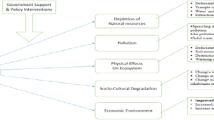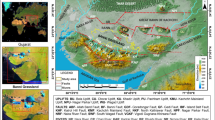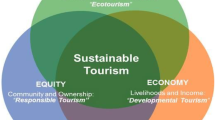The objective of this study was to investigate the impact of tourism activities on olive tree cultivation and the human population of the island of Lesbos. The presence or absence of tourism is related with the maintenance or abandonment of olive tree cultivation and population changes for each community. A spatial segregation of the island is evident, related to tourist development, olive tree cultivation, and population change. The results of the study demonstrate that in communities where tourism plays an important role olive tree cultivation is preserved and the population is stable. The preservation of the agro-ecosystem is assured while the olive groves remain productive. Simultaneously, the landscape, which provides specific attractions for tourism, is not altered.
Similar content being viewed by others
Author information
Authors and Affiliations
Rights and permissions
About this article
Cite this article
Loumou, A., Giourga, C., Dimitrakopoulos, P. et al. PROFILE: Tourism Contribution to Agro-Ecosystems Conservation: The Case of Lesbos Island, Greece. Environmental Management 26, 363–370 (2000). https://doi.org/10.1007/s002670010093
Issue Date:
DOI: https://doi.org/10.1007/s002670010093




